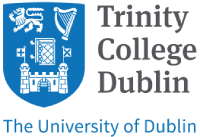Prof Kim McKelvey
No more applications being accepted
Funded PhD Project (European/UK Students Only)
About the Project
A fully funded studentship is available with Prof. Kim McKelvey at Trinity College Dublin. The project aims to use nanoscale electrochemical techniques to understand the lithiation/delithiation of single nanoparticles.
Background:
Li-ion batteries power modern mobile devices, and to increase battery performance both the anode and cathode of Li-ion batteries are often made from nanoparticles. The incorporation of nanoparticles into batteries increases the accessible surface area and reduces the Li-ion diffusion length, both of which increase battery performance. In addition, the use of nanoparticles allows for the contraction and expansion of the anode or cathode material, reducing fracturing and cracking during battery cycling and increases battery life.
However, there has been no electrochemical measurements of the lithiation/delithiation of a single nanoparticle, with all previous electrochemical measurements averaging the response from millions of nanoparticles. This project will use and develop nanoscale electrochemical techniques to measure the lithiation/delithiation of a single nanoparticle to understand how nanoparticle performance contributes to battery performance.
Project:
Scanning Electrochemical Cell Microscopy (SECCM) and/or electrocatalytic amplification will be used to measure the lithiation/delithiation of a single nanoparticle of Si, Lithium cobalt oxide (LCO), TiO2 , or other battery material. Finite element simulations will be used to quantify the lithiation/dilithiation process. A range of physical chemistry techniques, such as atomic force microscopy, electron microscopy and electrochemical impedance spectroscopy will also be used to characterise the nanoparticles. Full training will be given in all aspects of the project.
Research environment:
You will work in a supportive research group in the Department of Chemistry (http://www.mckelveylab.com/). Our lab is in the Trinity Biomedical Sciences Institute and has links to CRANN (the Centre for Research on Adaptive Nanostructures and Nanodevices) and AMBER (Advanced Materials and BioEngineering Research) research centres. Trinity College Dublin and the School of Chemistry has a vibrant research community with world class research facilities. You will have opportunities to interact with other research groups within Trinity, and other research groups within Ireland and internationally. You will have the opportunity to attend and present at national and international conferences.
Requirements:
Good university degree (1 st or 2:1) in Chemistry, Physics, Nanoscience or a related subject. You must be highly motivated and able to work independently and as part of a team. Good knowledge of physical chemistry and an interest in electrochemistry and research is required. Full training will be given in all aspects of the project.
Application:
The position is fully funded (stipend & fees) and will be part of the Dublin Chemistry Graduate Programme. The position will begin in September 2018, applications will be accepted until the position is filled. For further information or to apply please email a cover letter and CV to [Email Address Removed].
References
McKelvey, K.; German, S. R.; Zhang, Y.; White, H. S.; Edwards, M. A. Curr. Opin. Electrochem. 2017, 6 (1), 4–9.
McKelvey, K.; Robinson, D. A.; Vitti, N. J.; Edwards, M. A.; White, H. Faraday Discuss. 2018.
Mariano, R. G.; McKelvey, K.; White, H. S.; Kanan, M. W. Science 2017, 358 (6367), 1187–1192.

 Continue with Facebook
Continue with Facebook

